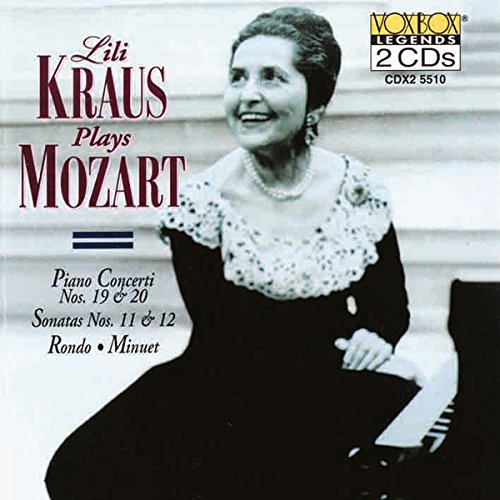DECEMBER 28, 2022 – (Cont.) I think of people as candles, each bearing a flame. Most people illuminate their immediate surroundings, then fade and disappear; some people light up the world before their flames flicker, then die. A few burn most powerfully after the wax and wick are long gone.
Mozart is an example of a bright and enduring star-candle. His genius burns as brightly today as it ever has and reaches far more ears, hearts and minds than he could have experienced in his wildest imaginings. Then there are the performing geniuses who, as bonfire-candles, give perpetuity to the brilliance of a Mozart. Lili Kraus was one such blaze.
Although she was in command of the full breadth of classical piano repertoire, Kraus became a recognized specialist in the interpretation of Mozart, whose favored instrument was the piano. Her mastery of Mozart was ironic: in personality, Lili Kraus was the quintessential romantic; the risk-taker with an insatiable thirst for life and adventure. Her character was much more suited for the music of Chopin or Schumann than for the finest Baccarat crystal of musical composition: the piano concerti of Mozart. The slightest deviation from “perfect” technical execution or musical interpretation risks shattering the glass. Would you entrust your finest crystal to someone larger than life, who wouldn’t take “No” for an answer; a person who as a young girl trying to escape extreme dysfunction in her impoverished home, visited daily the Budapest zoo, where she sneaked into the wolves lair and petted a wolf that shared her name?
Lili Kraus’s career as a world famous pianist, pedagogue and personality was as improbable as Abe Lincoln’s journey from a rude log cabin to the White House; from reading the Bible by candlelight to writing for posterity, the greatest speeches since Pericles. By coincidence, innate talent, extraordinary personality and dogged determination, Kraus surmounted Everest-like hurdles; converted adversity into opportunity.
As with any “big candle” Kraus’s brilliant light joined with many others, inside and outside the rarified company of the most notable musicians—performers, composers, pedagogues—of her age, which is also to say of all time.
Given the struggles of her early youth, Lili could well have led a sad life remarkable only for its misery and privation. Her mother and father fought constantly in their crowded quarters above the father’s crude shop where he ran a knife-sharpening shop. Her mother suffered from various psychological disorders and warped views of life. She crushed Lili’s first love (dance) and first musical choice (the violin), and initially, Lili had no interest when the mother scraped to buy a piano (a symbol of “class,” the mother thought)—cheap, used and in such bad condition, the keys could hardly be depressed. On that horrid instrument, however, young Lili learned to summon the manual power that would later define her mastery of the pianoforte.
Lili’s life serves as grand an inspiration as do her magnificent recordings of Mozart. She is yet another example of the candle power of our species. Especially with the turn of another year, may we seek (down any number of rabbit holes) the brighter candles among humankind and by their light, increase our own candle power.
(Remember to subscribe to this blog and receive notifications of new posts by email.)
© 2022 by Eric Nilsson
